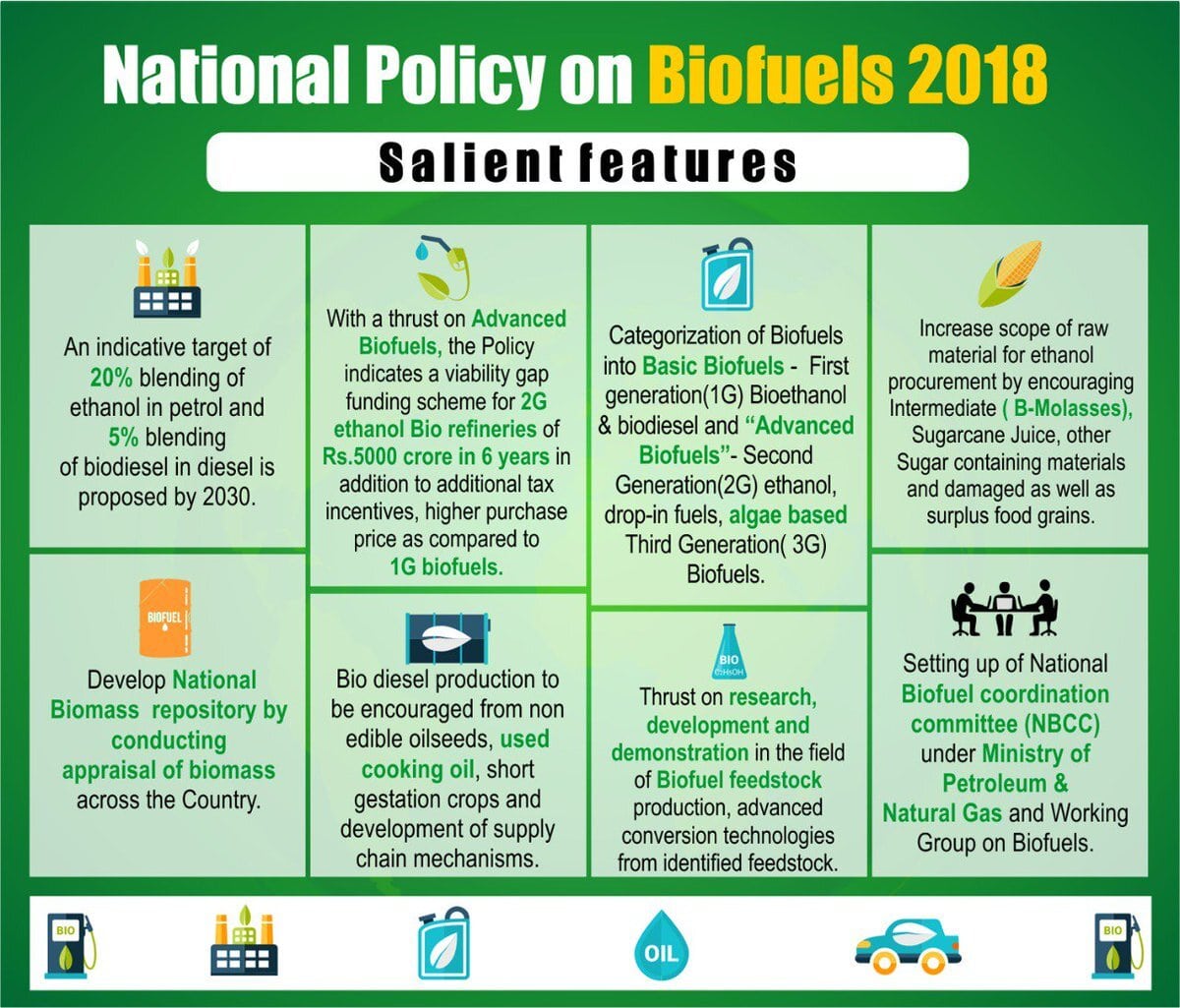Biofuel from Microorganisms | 28 Feb 2020
Why in News
Researchers at the International Centre for Genetic Engineering and Biotechnology (ICGEB) are developing a method to improve the growth rate and sugar content of a marine cyanobacterium called Synechococcus sp. PCC 7002.
Key Points
- Biofuel production is dependent on the availability of low-cost and sustainable supply of sugars and a nitrogen source. The sugars typically come from plants.
- However, some bacteria, such as the cyanobacteria (also known as blue-green algae), too can perform photosynthesis and produce sugar by fixing the carbon dioxide in the atmosphere.
- The yield of sugars from cyanobacteria could potentially be much higher than that of land-based crops unlike plant-based sugars.
- Cyanobacterial biomass provides a nitrogen source in the form of proteins.
- Use of marine cyanobacteria has been preffered as freshwater is increasingly getting scarce.
Cyanobacteria
- Cyanobacteria, also called blue-green algae, are microscopic organisms found naturally in all types of water.
- These single-celled organisms live in fresh, brackish (combined salt and freshwater), and marine water.
- These organisms use sunlight to make their own food.
- In warm, nutrient-rich (high in phosphorus and nitrogen) environments, cyanobacteria can multiply quickly.
Biofuels
- Biofuels are the fuels that can be produced from organic matter, or biomass, such as corn or sugar, vegetable oils or waste feedstocks. Example: Bioethanol, Biodiesel
- As biofuels emit less carbon dioxide (CO2) than conventional fuels (eg:- Petrol) they can be blended with existing fuels as an effective way of reducing CO2 emissions in the transport sector.
- The use of biofuels have grown over the past decade, driven largely by the introduction of new energy policies in Europe, the USA and Brazil that call for more renewable, lower-carbon fuels for transport. Today biofuels represent around 3% of road transport fuels in use around the world.
- In India, the National Policy on Biofuels, released by the Government of India in 2018, envisages production of biofuel from Used Cooking Oil (UCO). Also, the Policy has the objective of reaching 20% ethanol-blending and 5% biodiesel-blending by the year 2030.
International Centre for Genetic Engineering and Biotechnology
- It is a unique intergovernmental organisation initially established as a special project of the United Nations Industrial Development Organization (UNIDO).
- UNIDO is the specialized agency of the United Nations that promotes industrial development for poverty reduction, inclusive globalization and environmental sustainability.
- Fully autonomous since 1994, it runs 46 state-of-the-art laboratories, in Trieste, Italy (also Headquarters of the Centre), New Delhi, India and Cape Town, South Africa and forms an interactive network with over 65 Member States.
- It plays a key role in Biotechnology worldwide for excellence in Research, Training and Technology Transfer to industry to contribute in concrete terms to the achievement of sustainable global development and operates within the United Nations System.

